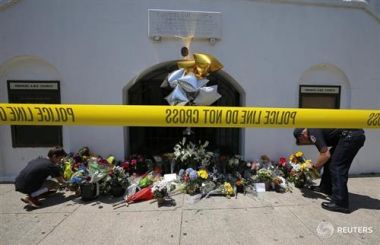Mass killings involving guns and school shootings are contagious, US study finds

Mass killings involving firearms and school shootings, defined as four or more deaths, are contagious and may occur within almost two weeks after one such incident, according to a new study.
According to the study "Contagion in Mass Killings and School Shootings" published in the journal Plos One, there is "significant evidence that mass killings involving firearms are [spurred] by similar events in the immediate past."
"We also find significant evidence of contagion in school shootings, for which an incident is contagious for an average of 13 days," according to the study.
It said 20 to 30 percent of such killings appear to be a result of "infection," according to a CNN report.
The study said on average, mass killings involving firearms occur approximately every two weeks in the US, while school shootings occur monthly on average.
"We find that state prevalence of firearm ownership is significantly associated with the state incidence of mass killings with firearms, school shootings, and mass shootings," the researchers said.
The spread of school shootings and mass killings was not dependent on location, and national media coverage might play a role in the spread, they said.
"What we believe may be happening is national news media attention is like a 'vector' that reaches people who are vulnerable," lead author Sherry Towers, a research professor at Arizona State University, told CNN.
She said those vulnerable refer to people who have regular access to weapons and are perhaps mentally ill.
"When at least three people are shot, but less than four people are killed, the media reports tended be local," Towers said. These incidents which got local news coverage but not national news coverage did not have a contagious effect.
The research said "firearm regulations that reduce overall firearm availability, such as permit and licensing regulations, appear to have a significant deterrent effect on suicide rates."
It said firearm mortality rates were found to be significantly lower in states with stricter gun laws. Secure gun storage practices involving safes and trigger locks have been shown to decrease the risk of youth suicides and unintentional firearm injuries, it added.
Jack Levin, a criminologist at Northeastern University, said excessive media attention creates copycat phenomenon.
"We make celebrities out of monsters," he said.
He said the high number of handguns in the US is partially responsible for the high rate of mass shootings.
"We have so many semi-automatic weapons that can be easily concealed, and taken from the home and used on classmates or whoever," Levin said. "The real problem in (the United States) has to do with handguns being in the hands of the wrong people. But you can't blame it all on guns. (The United States) leads the Western world in non-gun homicides, too."











